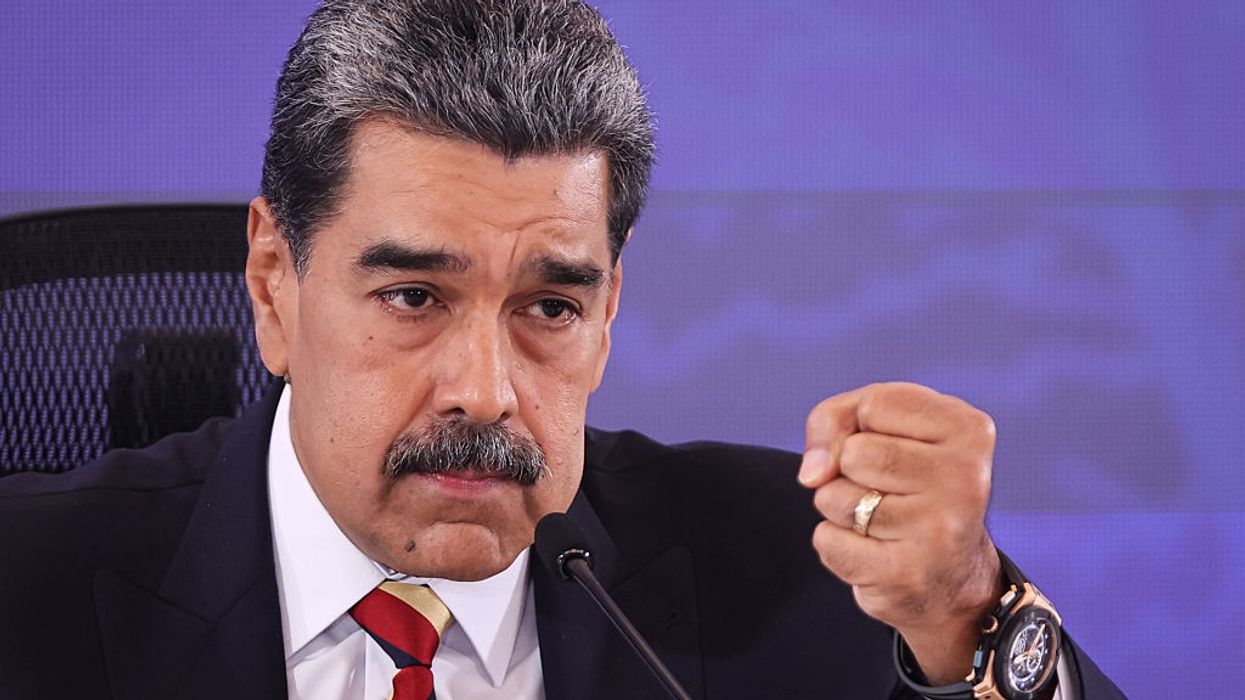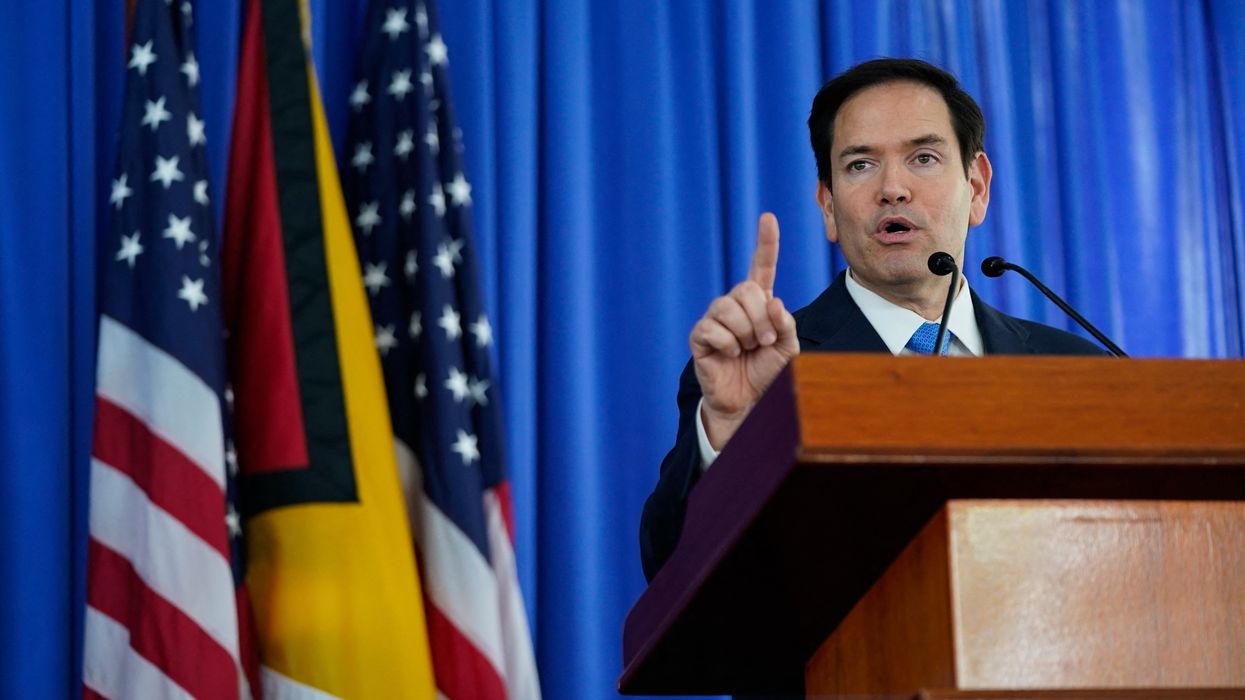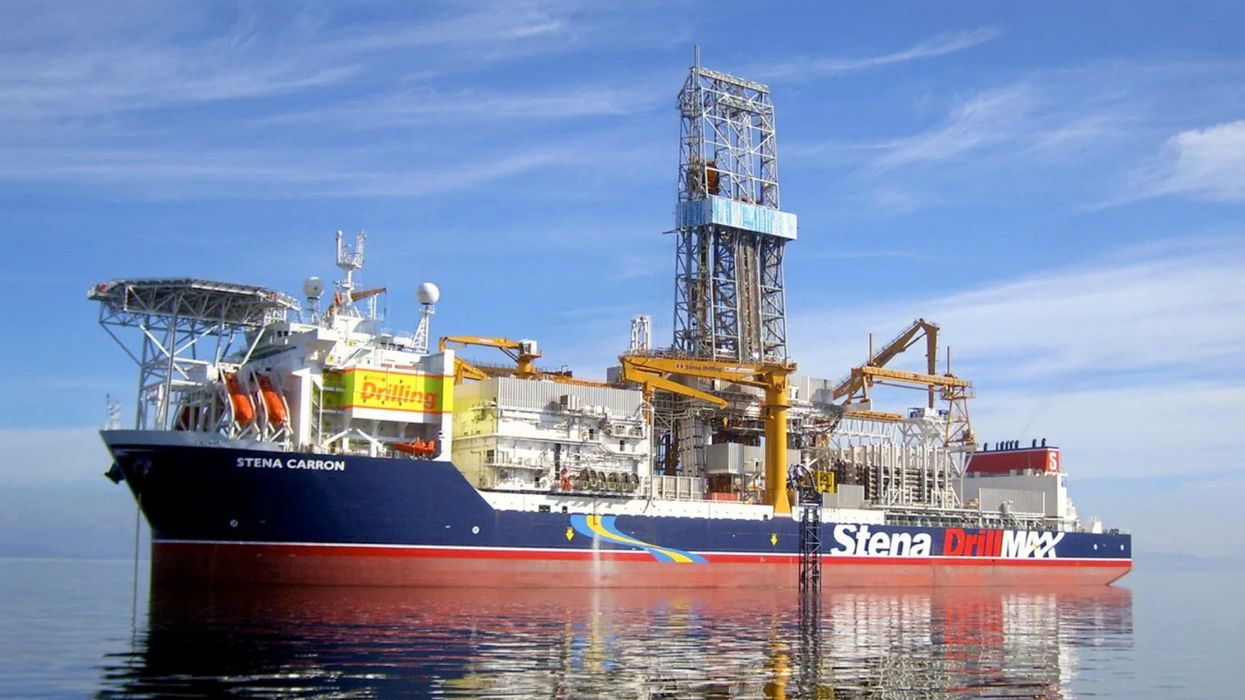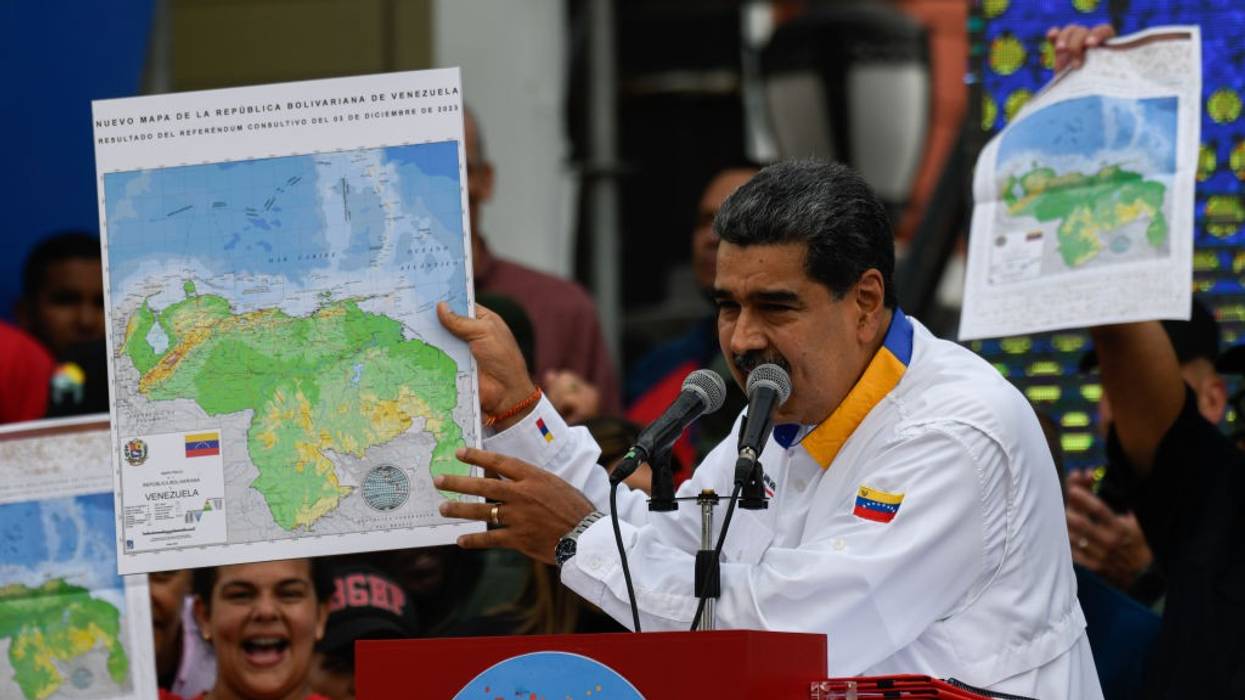Maduro Says US Pointing '1,200 Missiles' at Venezuela After Trump Sends More Warships
One anonymous American military official told Axios that the US seemed to be revving up for "Noriega part two," suggesting a regime change war may be on the horizon.
Venezuelan President Nicolás Maduro said the United States was pointing "1,200 missiles" at his country during a news conference Monday, and issued a stark warning that he was prepared to "constitutionally declare a republic in arms" should the US attack.
The US is set to raise the number of military vessels deployed near Venezuela to eight this week, which Maduro described as "the greatest threat that has been seen on our continent in the last 100 years."
Following an authorization by Trump to use military force against Latin American drug cartels, the Associated Press and CBS News report that "the US Navy now has two Aegis guided-missile destroyers—the USS Gravely and the USS Jason Dunham—in the Caribbean, as well as the destroyer USS Sampson and the cruiser USS Lake Erie in the waters off Latin America."
This week, an anonymous Defense Department official told the AP that, "three amphibious assault ships—a force that encompasses more than 4,000 sailors and Marines—would be entering the region this week."
"In response to maximum military pressure," Maduro told the international press, "we have declared maximum readiness to defend Venezuela," adding that the country "will never give in to blackmail or threats of any kind."
Though the US has not made any public threats to invade Venezuela, an unnamed official told Axios Thursday that Trump was planning something akin to "Noriega part two," referring to the US-led invasion of Panama, which overthrew its leader, Manuel Noriega, in 1989.
"The president has asked for a menu of options," the official added, "and ultimately this is the president's decision about what to do next, but Maduro should be shitting bricks."
Trump has a long history of calling for US intervention to overthrow the South American nation's government.
During Trump's first term, he repeatedly suggested that the US should invade Venezuela to take Maduro out—an idea that his top aides rebuffed.
Trump instead dramatically escalated sanctions on Venezuela, which many studies have shown contributed to the nation's historic economic crisis. Former Secretary of State Mike Pompeo explicitly acknowledged that the goal of these sanctions was to push the Venezuelan people to topple Maduro.
In 2023, following his first presidency, Trump lamented at a rally that the US had to purchase oil from Venezuela, saying that if he were in charge, "We would have taken [Venezuela] over; we would have gotten to all that oil; it would have been right next door."
According to Responsible Statecraft, lobbying groups in bed with Exxon Mobil have been leading the campaign for "maximum pressure" against Venezuela, with the goal of protecting the company's control of over 11 billion barrels of oil in neighboring Guyana, which has been referred to as a "petrostate" closely aligned with the oil giant.
US Secretary of State Marco Rubio made several posts in support of Guyana as it backed Trump's escalation with Venezuela.
As Joseph Bouchard and Nick Cleveland-Stout wrote:
Rubio has all but committed to a U.S. security guarantee for Guyana and Exxon. On a visit to Guyana in March, he warned Venezuela against attacking Exxon's oil fields. "It woultd be a very bad day for the Venezuelan regime if they were ever to attack Guyana or attack ExxonMobil," Rubio said then.
Prior to that, Rubio obliquely suggested in a Fox Business interview that there may be plans in the works to force Maduro out of power, saying the Venezuelan president was "going to have to be dealt with."
On Monday, Maduro said Rubio was leading Trump "into a bloodbath... with a massacre against the people of Venezuela."
Trump's deployment of warships to Venezuela is part of what he says is an effort to use military force against drug cartels, which his administration has dubbed terrorist groups.
Though Trump has named Maduro as a global drug kingpin and the leader of the Venezuelan Cartel de los Soles, Venezuelan Foreign Minister Yván Gil disputed that accusation Monday, calling it a "false narrative."
He cited the United Nations Office on Drugs and Crime's 2025 World Drug Report, which says that Venezuela is not a major cocaine-producing or transit country.
This is backed up by data from the US Drug Enforcement Agency, which has found that 84% of the cocaine seized in the US comes from Colombia.
According to UNODC, "the majority of Colombian cocaine is being trafficked north along the Pacific coast," rather than trafficked through Venezuela. Just 2% of all the cocaine seized by UNODC is in Venezuela, ranking it sixth among Latin American countries.
"For there to be a drug cartel, either you produce (the drugs), you process it, or you traffic it," Venezuelan congresswoman Blanca Eekhout told CNN. "If there is no cultivation, production, or drug trafficking in Venezuela, how can there be a cartel? It's unsustainable."
As Trump's military threats have revved up, Maduro has mobilized tens of thousands of soldiers and several warships to prepare for a possible invasion.
This weekend, the streets of Caracas filled up with demonstrators opposing US aggression and supporting Maduro's military recruitment efforts. They were joined by supporters across the globe in cities including London, Johannesburg, Sydney, and Mexico City.
(Video: Forbes)
Even members of Maduro's opposition have harshly criticized the idea of US intervention. Henrique Capriles, a frequent critic and one-time presidential opponent of Maduro, told the BBC that although he opposes Maduro's antidemocratic actions in the most recent election, he wants to see the tensions between Venezuela and the US solved through negotiations rather than gunfire.
"There are no good wars; they're all bad. That's my position, and I'm not afraid to express it publicly," Capriles said. "Most of the people who want a military solution and a US invasion don't live in Venezuela. They don't even consider the consequences. Human lives are lost."



